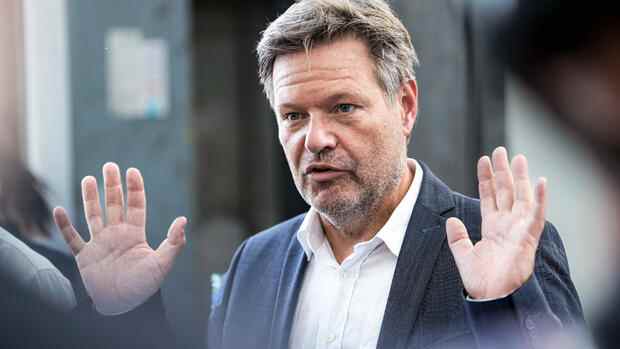The Minister for Economic Affairs’ gas surcharge has weaknesses.
(Photo: IMAGO/Political Moments)
The excitement is just as great as the irritation – and that in itself is a bad sign for the architect of the gas levy: the vice chancellor. It is the first major setback for Robert Habeck, who at times was and is longed for as chancellor because of his rhetorical skills.
In fact, the economics minister did not only poorly support the gas levy, which is after all the most important energy project since the outbreak of the Ukraine war. She also has manual weaknesses.
Companies benefit from the levy that should not benefit under any circumstances: including the highly profitable Swiss energy trader Axpo, but also EnBW with its gas trading subsidiary VNG.
Why, on the other hand, the gas consumer should finance this surcharge, but not the owners of oil heating systems, which are ecologically even more questionable, is not really clear. Not to mention the bickering about VAT.
Top jobs of the day
Find the best jobs now and
be notified by email.
Solid political craftsmanship looks different. A law that is based on the altruistic attitude of companies that, like RWE, are willing to give up voluntarily if they think they are not entitled to the contribution money, is an impertinence in terms of regulatory policy.
Good ideas, bad execution
And the government has itself to thank for the fact that the opposition now wants to appeal to the constitutional court – with a good chance of success.
All of this is all the more tragic because the idea behind the levy is not fundamentally wrong: the state cannot fully cushion the enormous costs of this war, not for the companies, not for the citizens – especially since subsidizing the gas price is such an important incentive to save would nullify. It was also right to save the systemically important market leader Uniper.
However, it is wrong to say that the only alternative to the gas surcharge would have been “a collapse of large parts of the energy sector”. The state could have saved Uniper with a direct and larger-scale equity investment based on the Lufthansa model, instead of collecting 34 billion euros from consumers. And he could at least have selected the payers according to fair and comprehensible criteria.
More: No money for stable companies – How the traffic light could save the gas surcharge
